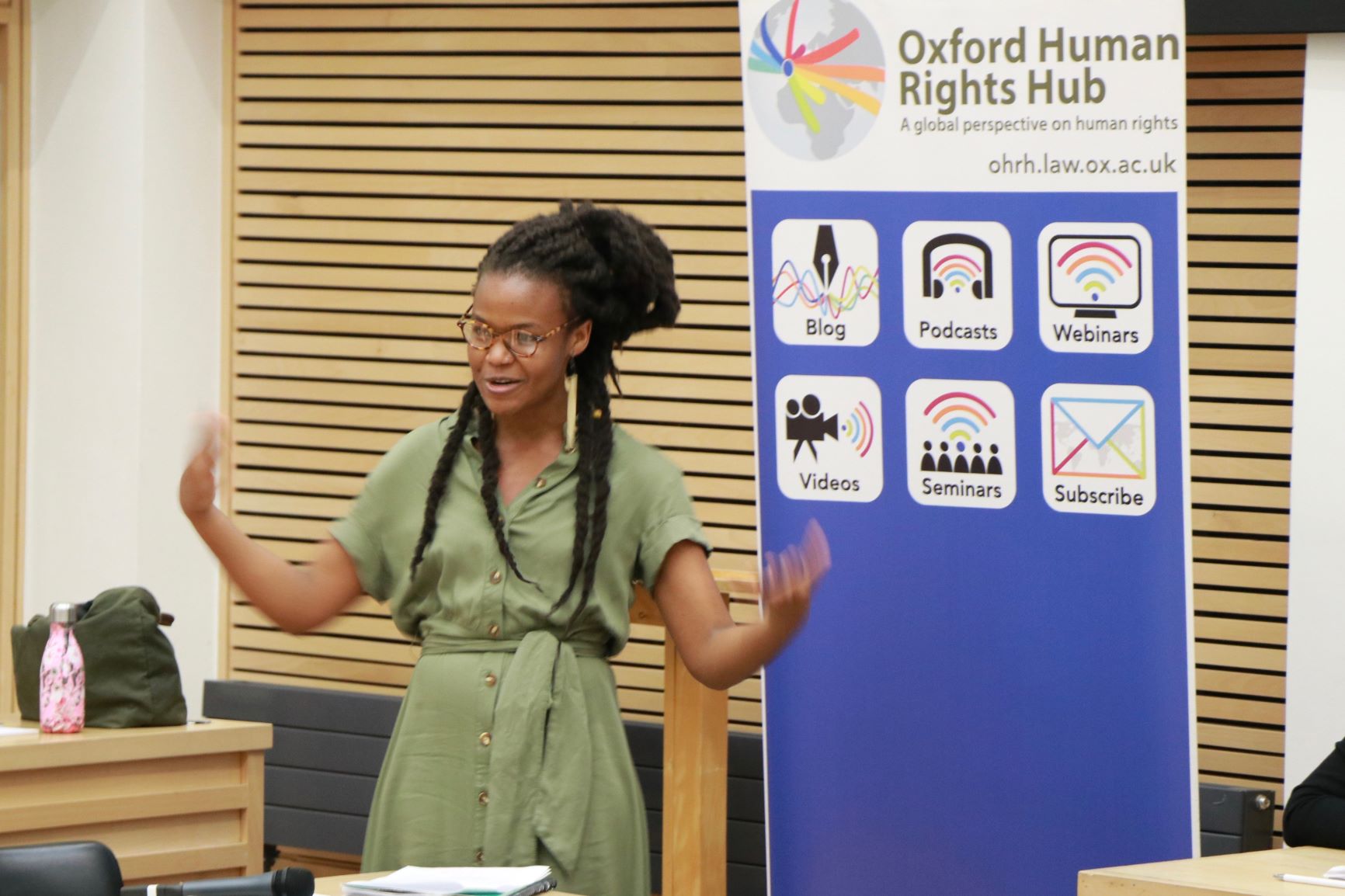Celebrating 100 years of women in the legal profession - Sexual Harassment at Work
Associated people
The second in the series of events promoted by the UK Association of Women Judges to celebrate 100 years of women in the legal profession took place in Oxford on 8 May under the title “Sexual harassment at work, unacceptable, unlawful but unremitting – reflections on its nature and persistence and on the changing legal landscape”. The panellists on this occasion were our former vice-president, Dame Laura Cox and Oxford academic, Professor Sandra Fredman. The session was moderated by Employment Appeal Tribunal Judge, Her Honour Judge Jennifer Eady.

Laura Cox asked how far we have really come in combating unacceptable attitudes given that in 2018 a company was prepared release a perfume called “Sexual Harassment”. Sandy Fredman highlighted the impact of the President of the United States’ publicly expressed comments about women on creating a climate in which these issues continue to arise.
Women are still subordinated at work and there is a need to address why it remains so tireless and unyielding a problem. The “Me Too” movement shone a light on the world of celebrity and brought the issue of sexual harassment in the workplace to public prominence. However, the reports by the TUC, Fawcett Society, and the Equality and Human Rights Commission which highlight the significant problems encountered with sexual harassment, ranging from unwelcome sexual jokes, sexual touching to assaults and worse have not received the same attention. The research showed that four out of five of those responding had not reported the incident and of those who did, 80% said nothing changed and 18% that complaining had made the situation worse.
The courage of those challenging discrimination, in campaigning, seeking changes in legislation or pursuing individual complaints was acknowledged. Sexual harassment has been unlawful since 1986 and yet it remains ever present in the workplace. It hampers efforts to advance gender equality, sours working relationships and stifles women’s potential. What is more, it causes a loss to employers that they can ill afford. The status of managers has at times appeared to matter more than more junior staff both at work and in the tribunal. It is often the more junior member of staff who may end up leaving whilst the more senior person against whom the complaint has been made remains in post.
Consideration was given to how the issue can be addressed. One answer would be to restore some of the protections which have been removed, such as an employer’s responsibility for the actions of third parties, as could the power of the Tribunal to make recommendations not just in relation to the individual before it but about the practice of the employer. If employers faced financial consequences of the magnitude of the fines thought appropriate in relation to data protection, there might be more of a sea change.

Some thought was given to how to tackle the problem at source. Creating an equality duty, which puts an obligation on employers to provide a workplace where people know such behaviour is not acceptable and where people feel safe speaking out without being regarded as trouble makers would be a start. Ideally, procedures should be quick and transparent. An informal stage within the procedure can be an important tool, particularly where people are going to have to continue to work together. The skills needed to implement such a process cannot, however, be under estimated. Any procedure needs to be speedy, transparent, safe and guarantee a fair hearing.
The process of bringing a claim needs to be fair both to the complainant and the person responding to the allegation. There needs to be awareness of the need not to re-victimise the complainant as well as a need to give due respect to the process so that it does not become a trial by ordeal.
This is not just a women’s issue. Men who are in senior positions can make a difference. The ILO has now agreed a convention on violence and harassment in the world of work to be adopted later this year which has the prospect of getting to the heart of the problem because each member state will have to report on how all workers are protected.
We had to be reminded at the end that however gloomy we may feel at times we have come a long way. The evening served as a reminder that we cannot be complacent and must continue to remain vigilant in protecting the rights of workers not to be subjected to sexual harassment at work.

Judge Margaret Glentworth (UK Association of Women Judges)


